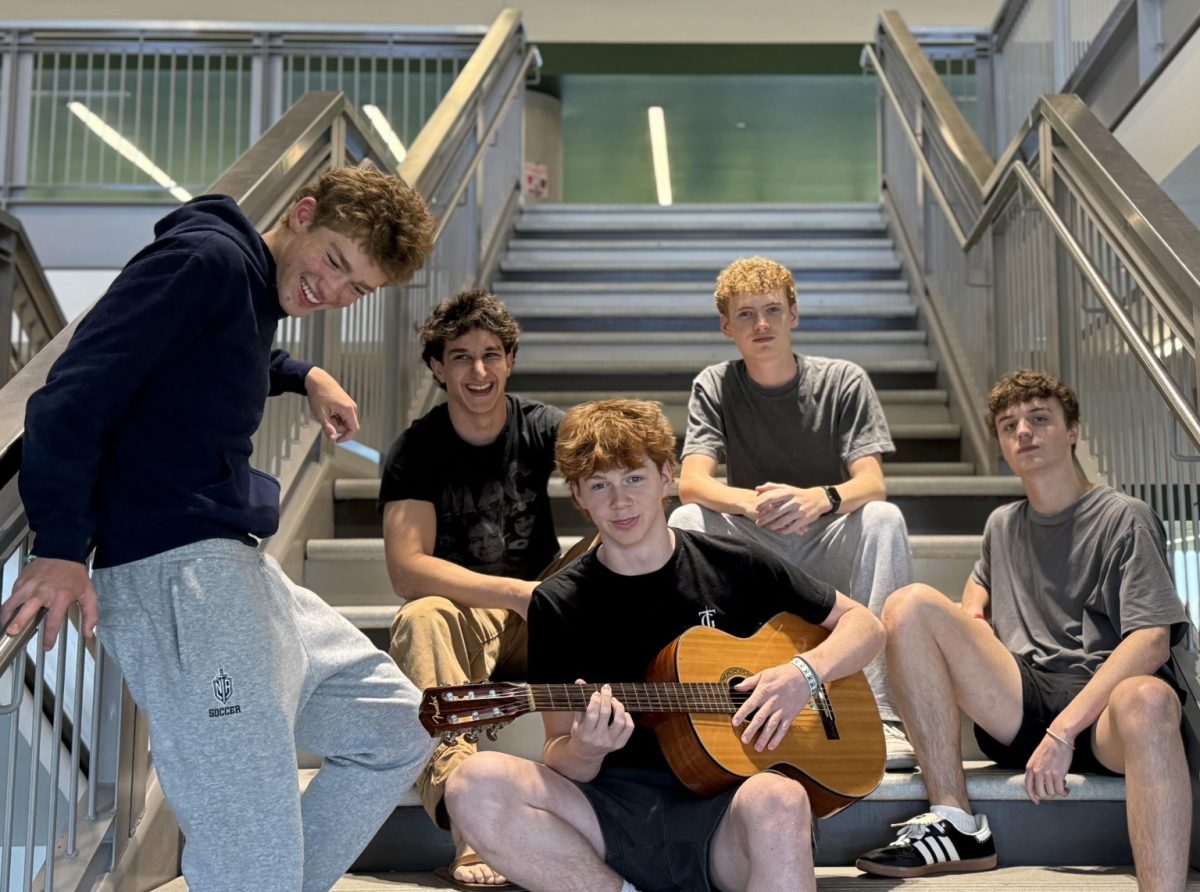From relaxing on beach chairs under the vibrant, summer sun to sitting at desks under the harsh, fluorescent lights that line North Atlanta’s ceilings, many students are not thrilled about the new school year awaiting them—especially a school year with no phones. Returning from summer break, administrators have implemented new policies regarding headphones, personal computers, lunches, and most significantly: phones. While students feel their independence slipping away, staff underscore the benefits these changes will have on learning and safety.
During the first weeks of school, many students have complained about North Atlanta’s decision to ban phones and headphones; however, many of those students are unaware that the ban began at the state level. Bills regarding electronic usage at school have been signed in 33 states nationwide. In May 2025, Georgia enacted a law prohibiting cell phones in all public schools, K-8. This prompted Atlanta Public Schools to outline a policy stating students are allowed to possess their personal electronic devices, but the usage of these devices during school hours is forbidden, unless told otherwise by a school staff member. Although this rule is not popular amongst students, staff and admin have noticed significant changes around the school. Assistant Principal Byron Barnes has observed a lot more physical conversations in the cafeteria and hallways now that students are not glued to their phones. Furthermore, students now feel obligated to listen to their teachers, since they can no longer listen to music through their AirPods. “Not having the distraction of phones has made a huge difference in the classroom,” said AP Lang teacher Erin Turner. “Students do a much better job of paying attention, staying focused, and communicating with one another.”
Phones aren’t the only devices facing restrictions. Computers, too, are facing tighter rules. As the popularity of AI platforms, such as ChatGPT, continues to grow, concerns regarding cheating become more prevalent. When students use their personal computers, teachers cannot monitor their activity, and they have easy access to any website. Thus, North Atlanta has required that school-issued Chromebooks be used for all assessments to minimize the potential for cheating. However, some teachers prohibit the use of personal computers for any assignment, frustrating many students who are more familiar with using their laptops. “I’m used to the keyboard on my MacBook, so it’s annoying having to use another one,” said junior Francie Herring. “Plus, the school computers are 10 times slower than personal computers.”
The last big change that came with the new school year is the rules about lunch. Last year, many students enjoyed the freedom of being able to eat lunch on the floor of their third-period class or in their teachers’ classrooms. However, due to the abundance of trash (not in the trash can) and students’ inability to control noise levels, this privilege was revoked, so all students are now required to eat in the cafeteria. Students complain about eating in the cafeteria because it’s too loud, too cold, and too far away from their classrooms. However, Mr. Barnes provides reasons as to why students are now required to eat in the cafeteria and not wherever they please. “You would need eight people just to keep students from going up the stairs or fooling around in the bathroom,” said Barnes. “It became a huge cleanliness issue because you would walk upstairs and see a plate of food sitting on one of the lockers.”
Students and staff don’t exactly see eye-to-eye on many of these policy changes, but as the year progresses, hopefully, both sides will come to understand each other’s perspective, even if they don’t fully agree. The 2025-2026 school year may not compare to a day at the beach, but with fewer distractions, it may be brighter than one would expect.








